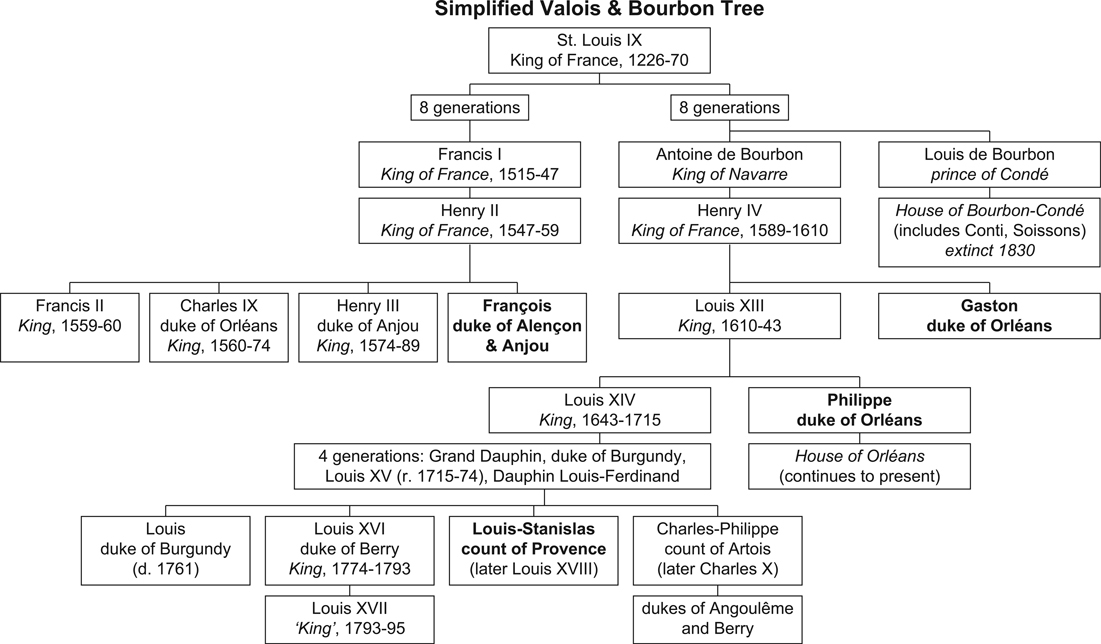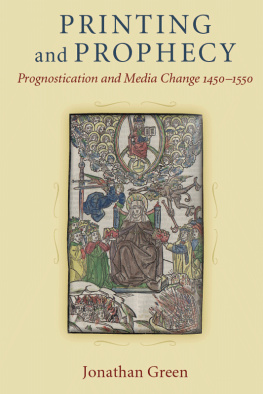Jonathan Spangler - Monsieur. Second Sons in the Monarchy of France, 1550-1800
Here you can read online Jonathan Spangler - Monsieur. Second Sons in the Monarchy of France, 1550-1800 full text of the book (entire story) in english for free. Download pdf and epub, get meaning, cover and reviews about this ebook. year: 2022, publisher: TaylorFrancis, genre: Children. Description of the work, (preface) as well as reviews are available. Best literature library LitArk.com created for fans of good reading and offers a wide selection of genres:
Romance novel
Science fiction
Adventure
Detective
Science
History
Home and family
Prose
Art
Politics
Computer
Non-fiction
Religion
Business
Children
Humor
Choose a favorite category and find really read worthwhile books. Enjoy immersion in the world of imagination, feel the emotions of the characters or learn something new for yourself, make an fascinating discovery.
- Book:Monsieur. Second Sons in the Monarchy of France, 1550-1800
- Author:
- Publisher:TaylorFrancis
- Genre:
- Year:2022
- Rating:5 / 5
- Favourites:Add to favourites
- Your mark:
- 100
- 1
- 2
- 3
- 4
- 5
Monsieur. Second Sons in the Monarchy of France, 1550-1800: summary, description and annotation
We offer to read an annotation, description, summary or preface (depends on what the author of the book "Monsieur. Second Sons in the Monarchy of France, 1550-1800" wrote himself). If you haven't found the necessary information about the book — write in the comments, we will try to find it.
Jonathan Spangler: author's other books
Who wrote Monsieur. Second Sons in the Monarchy of France, 1550-1800? Find out the surname, the name of the author of the book and a list of all author's works by series.
Monsieur. Second Sons in the Monarchy of France, 1550-1800 — read online for free the complete book (whole text) full work
Below is the text of the book, divided by pages. System saving the place of the last page read, allows you to conveniently read the book "Monsieur. Second Sons in the Monarchy of France, 1550-1800" online for free, without having to search again every time where you left off. Put a bookmark, and you can go to the page where you finished reading at any time.
Font size:
Interval:
Bookmark:

For the first time, this volume brings together the history of the royal spare in the monarchy of early modern France, those younger brothers of kings known simply as Monsieur.
Ranging from the Wars of Religion to the French Revolution, this comparative study examines the frustrations of four royal princes whose proximity to their older brothers gave them vast privileges and great prestige, but also placed severe limitations on their activities and aspirations. Each chapter analyses a different aspect of the lives of Franois, duke of Alenon, Gaston, duke of Orlans, Philippe, duke of Orlans and Louis-Stanislas, count of Provence, starting with their birth and education, their marriages and political careers, and their search for alternative expressions of power through the patronage of the arts, architecture and learning. By comparing these four lives, a powerful image emerges of a key development in the institution of modern monarchy: the transformation of the rebellious, politically ambitious prince into the loyal defender even in disagreement of the Crown and of the older brother who wore it.
This volume is the perfect resource for all students and scholars interested in the history of France, monarchy, early modern state building and court studies.
Jonathan Spangler is a specialist in the history of monarchy, nobility and the court of France. His research into the enduring power of the Lorraine-Guise family has been published as The Society of Princes (2009) and Aspiration, Memory and Representation (2015). He teaches history at Manchester Metropolitan University and is Senior Editor of The Court Historian.
First published 2022
by Routledge
2 Park Square, Milton Park, Abingdon, Oxon OX14 4RN
and by Routledge
605 Third Avenue, New York, NY 10158
Routledge is an imprint of the Taylor & Francis Group, an informa business
2022 Jonathan Spangler
The right of Jonathan Spangler to be identified as author of this work has been asserted by him in accordance with sections 77 and 78 of the Copyright, Designs and Patents Act 1988.
All rights reserved. No part of this book may be reprinted or reproduced or utilised in any form or by any electronic, mechanical, or other means, now known or hereafter invented, including photocopying and recording, or in any information storage or retrieval system, without permission in writing from the publishers.
Trademark notice: Product or corporate names may be trademarks or registered trademarks, and are used only for identification and explanation without intent to infringe.
British Library Cataloguing-in-Publication Data
A catalogue record for this book is available from the British Library
Library of Congress Cataloging-in-Publication Data
Names: Spangler, Jonathan, 1971 author.
Title: Monsieur : second sons in the monarchy of France,
15501800 / Jonathan Spangler.
Other titles: Second sons in the monarchy of France, 15501800
Description: London ; New York, NY : Routledge, Taylor & Francis
Group, 2022. | Includes bibliographical references and index. |
Contents: An Overly Powerful Younger BrotherThe Evolution
of Fraternal Relations and the Institution of the ApanageParentage,
Birth, EducationGetting Established: Apanage, Marriage and
FamilyExpressions of Authority and Rebellion,
at Home and AbroadBeyond Politics: The Household and
Princely PatronageThe Last Monsieur.
Identifiers: LCCN 2021028617 | ISBN 9780367761936 (hbk) |
ISBN 9780367761943 (pbk) | ISBN 9781003165897 (ebk)
Subjects: LCSH: Anjou, Fran ois, duc d, 15541584. | Orl ans, Gaston,
duc d, 16081660. | Orl ans, Philippe, duc d, 16401701. | Louis
XVIII, King of France, 17551824. | FranceKings and rulers
BrothersBiography. | FranceKings and rulersSuccession. |
PrincesFranceBiography. | MonarchyFranceHistory
17th century | MonarchyFranceHistory16th century. |
MonarchyFranceHistory18th century.
Classification: LCC DC36.6 .S66 2022 | DDC 944/.029dc23
LC record available at https://lccn.loc.gov/2021028617
ISBN: 978-0-367-76193-6 (hbk)
ISBN: 978-0-367-76194-3 (pbk)
ISBN: 978-1-003-16589-7 (ebk)
DOI: 10.4324/9781003165897
Typeset in Bembo
by Apex CoVantage, LLC
Access the Support Material: www.routledge.com/9780367761943
 FIGURE 0.1 Valois and Bourbon simplified family tree
FIGURE 0.1 Valois and Bourbon simplified family tree MAP 0.2 Map of France with names of provinces and selected cities (in italics).
MAP 0.2 Map of France with names of provinces and selected cities (in italics). Cover:The French Forces: Louis XIII and his brother Gaston, duke of Orlans, are depicted together, at the head of troops preparing to head to Italy in the spring of 1630. Significantly, the title names only the King. Gaston is mentioned in the accompanying poem, as foiling the plans of their enemies due to his return from exile. In the end, Gaston did not command troops in Italy and by the end of the year was once again preparing to go into exile. (engraving by Abraham Bosse, Metropolitan Museum of Art/Wikimedia Commons).
To Monsieur: Franois, Gaston, Philippe and Louis-Stanislas
La Musique et la Symphonie,
Par une excellente harmonie,
Y ravissoient lOuye aussi
Et lon peut enfin dire ici,
A la gloire de ce grande PRINCE,
En qui lon ne void rien de mince,
Que, comme il prime en DIGNIT
Aprs lauguste MAJEST,
Il prime en la MAGNIFICENCE
Pour tre en tout UNIQUE EN FRANCE
Comme UNIQUE FRRE du Roy,
Auguste Titre, en bonne foy.
Charles Robinet, Lettre en vers Madame, 5 July 1665
This book is dedicated to younger brothers everywhere who suffer from living in the shadow of their older brothers. And to older brothers who sometimes have to assert their authority to bring rebellious princes back into line.
DOI: 10.4324/9781003165897-1
In late October 1569, King Charles IX of France rushed to join his troops besieging the town of Saint-Jean-dAngly, north of Bordeaux. He was irritated by the increasing praise being heaped on his younger brother, Henri, duke of Anjou, and the great victories he had won against rebellious Huguenot forces at Jarnac back in March and again in the previous weeks at Moncontour. The young king was determined to win glory for himself on the battlefield and not be upstaged. His brother was acting as Lieutenant-General of the Kingdom, a title he had been granted in 1567, aged only 16 only a year younger than the King and as someone who by all accounts had been set up from an early age by their mother, Catherine de Medici, to become the Kings alter ego. But just over a year later, after a reign of not even four months, the new king of Poland and grand duke of Lithuania learned that his older brother had died, and he hastened back to France to take his place as King Henry III.
One of the chief pillars of the duke of Anjous power in the reign of Charles IX was the undeniable fact that he was always his brothers heir. The position of heir to the throne brought with it great authority, and sometimes great headache to the older brother as monarch. In previous reigns of the sixteenth century, Francis I and Henry II had not had this particular problem, having no surviving male siblings though they certainly had their share of overly powerful princes of the blood and noblemen. We need to go all the way back to the reign of Louis XI (r. 14611483) to find a French king with a younger brother, Charles of France, known consecutively as duke of Berry, then Normandy, then Guienne. This cadet prince did not live a long life (14461472) and was more than twenty years younger than his brother, so their relationship was often more like father and son. Berrys nominal place as leader of a revolt of senior princes of the blood against the Crown (the War of the
Next pageFont size:
Interval:
Bookmark:
Similar books «Monsieur. Second Sons in the Monarchy of France, 1550-1800»
Look at similar books to Monsieur. Second Sons in the Monarchy of France, 1550-1800. We have selected literature similar in name and meaning in the hope of providing readers with more options to find new, interesting, not yet read works.
Discussion, reviews of the book Monsieur. Second Sons in the Monarchy of France, 1550-1800 and just readers' own opinions. Leave your comments, write what you think about the work, its meaning or the main characters. Specify what exactly you liked and what you didn't like, and why you think so.









